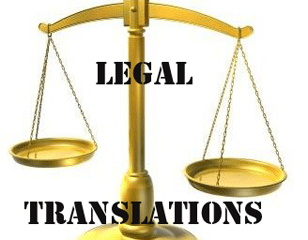What is a certified translation?
What is a certified translation? There is no simple answer, because the requirements vary depending on the use case. What may be considered a certified translation in a certain situation may be unsuitable in another. This article will review some of the forms of translation certification that exist and provide you with some tips on how to get your documents certified the right way.
Having said that, I would like to dispel some misleading statements about certified translation that some translation companies advertise on their websites. Here is one example:
Our community of over 15000 professional certified translators around the world guarantees you will get high quality translation FAST!
What does that statement mean? That you can use any translation you order from that company and use it in an official way in all circumstances? That is simply not true and such statements need to be checked carefully. Avoid spending your hard earned money on a translation only to find out afterwards that it does not serve your purpose.
The first question you should ask yourself is this: do I really need a certified translation? Because in most cases you won’t need any kind of certification at all. Things like blog posts, website content, emails, software apps, tender documents, employee handbooks, resumes and most appliance manuals don’t need to be certified. Getting such documents certified would be a waste of time and money.
Documents will typically need to be certified if they are submitted to an official body like a court-of-law, an educational institution, an Institutional Review Board(IRB) or a government agency. Here too, the requirements vary widely depending on the country in which you are filing the translation and the specific institution.
Working with Certified Translators
While the definition of a certified translation may be ambiguous, the definition of a
certified translator is much clearer. Some accredited bodies like the
American Translation Association offer certification in specific language pairs. Other translation associations, like the
Japanese Association of Translators (JAT) or the
Norwegian Association of Professional Translators (
Norsk fagoversetterforening) offer paid membership but do not offer any kind of certification. Some universities offer training and even degrees in translation, but this does not necessarily constitute any official kind of certification. Working with a translator that is certified by an internationally accredited translation association or with a translator that has a degree in translation from a reputable university is usually a guarantee that the work you will receive is of very high quality. But once again, a translation received from a certified translator does not necessarily mean that the translation itself is certified.
Translation Company Certificate
This is one of the more common forms of certification. The translation company provides you with a
Certificate of Accuracy on an official company letterhead. The company will often include the names of the translator and the reviewer who worked on the translation. This kind of certification is often requested for medical translation for clinical trials, when the translations need to be submitted to an IRB or ethical committee. High school transcripts and other documents that are submitted to institutes of higher education tend to accept this kind of certification.
Sworn Translation
In some countries, a sworn translation may be required when submitting official documents in the language of that country to a court or other government institution. In these countries, the translator who translates the documents makes an oath that the translation is authentic. The sworn translator must be recognized by the legal jurisdiction in which the document is being filed.
The following websites list some of the sworn translation systems in place around the world.
http://ec.europa.eu/...PBL_ID=363
http://en.wikipedia.org/wiki/Translating_for_legal_equivalence
When ordering a sworn translation, make sure that the translator is indeed licensed as a sworn translator in the venue you are filing in. Please note that in some countries, like Spain and Turkey, each district has its own sworn translators and their oath is not valid in other districts in the same country.For sworn translation, there will be an additional fee for stamping each page of the translation with an official seal. These costs may be significant.
Notarized Translations
In countries which do not have sworn translation system in place, documents can be notarized by a lawyer or a notary. Notarization does not always validate the translation itself, but establishes the identity of the translator and attests to the fact that the translator performed the said work.
Signed Translator Affidavit
You can ask the translator to provide a signed Certificate of Accuracy. These affidavits can also be notarized. The affidavit will typically establish the credentials of the translator, including proficiency in the source and target languages, educational training and official translation certification.
Certified Quality Systems
Some translation companies have their quality system audited by a recognized certification body. Two of the common certified quality systems are ISO 9001:2008 and EN 15038. The EN 15038 certification is specific to the area of translation. But please note that getting a translation from a certified translation company does not mean that the translation is certified.
Summary
If you require a certified translation of a document, find out as much as you can about the certification requirements. Then contract a translation company or a translator that meets those requirements. There is wealth of information on the Internet and it is recommended that you go to the source, e.g. official government websites, to find out the specific requirements. Call the local embassy or contact people at the organization you need to file with and don’t be afraid to ask specific questions. Remember, many people have ordered so-called certified translations only to find out that they can’t be used officially.
